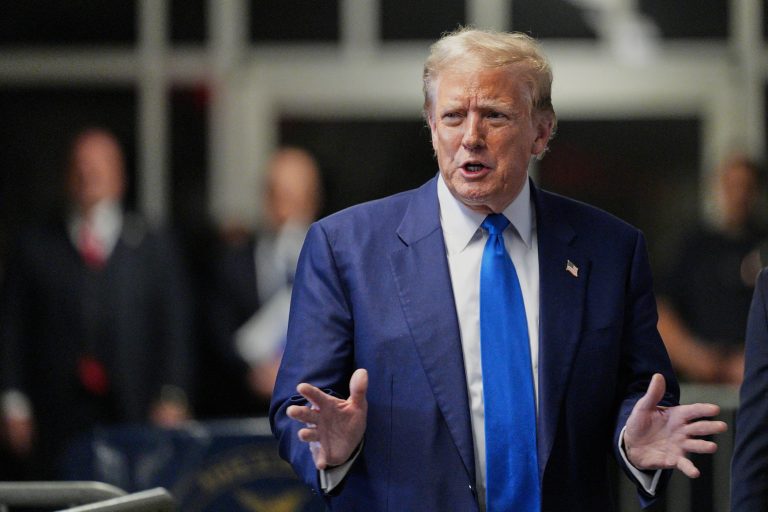Vaccine passports are coming to Quebec according to a new announcement by the French-speaking Province’s leader on Aug. 5.
“People who have made the effort to get their two doses should be able to live a somewhat normal life, having access to all activities, including non-essential ones,” said Premier Francois Legault, according to The Canadian Press. Legault has long since made the plan to install a two-tiered society based on vaccination status publicly known, but had said it would not occur until September.
Legault used strong language to target the unvaccinated, saying they put others and even all of society at risk by not taking the gene-therapy based injections offered in Canada, “I want to be very clear: if you don’t have specific reasons that a vaccination could threaten your health, you are putting yourself at risk by not getting your two doses of vaccine.”
“You’re also putting all of society at risk. If we don’t want to add to the deaths, if we don’t want to overwhelm hospitals, I am asking all Quebecers — it’s a question of solidarity — to go get your two doses,” Legault said according to the Montreal Gazette, one of the Post Media syndicate’s city-level publications.
Specific details of the passport’s installation were not revealed. Legault said his Health Minister would let the public know what lies ahead for them in the coming days.
Success
You are now signed up for our newsletter
Success
Check your email to complete sign up
AFP said Prime Minister Justin Trudeau gave Legault the thumbs up when he said, “I fully support the initiative of Mr Legault and the Quebec government,” while also foreshadowing a mandatory vaccination requirement for all federal government employees.
The Quebec government website doesn’t mince words about the nature of what’s coming. On its official COVID-19 Vaccine Passport website it describes the plan as “A free official document showing that the holder is protected against COVID-19.”
The government says the plan is to target, “High-risk activities with a limited number of people (gyms, team sports, bars, restaurants, etc.)” and “Moderate- or low-risk activities with bigger groups of people (arts and entertainment, festivals and major events, games at sports stadiums, etc.)”
They say the implementation of the passport regime will “depend on changes in the epidemiological situation and on vaccine coverage in Québec.”
Quebec is predominantly composed of Francophones, and with a separate legal system from the England-based common law system used in the rest of Canada. Almost 8.5 million people call the Province home.
The Province has been the hardest hit by the novel coronavirus since the pandemic first began, with 378,000 positive PCR tests out of 1.44 million Canada-wide and 11,240 COVID-19-associated deaths out of 26,634 Canada-wide.
According to the government, it has distributed 11,303,577 injections as of Aug. 5 and boasts that 73.8 percent of its population has taken at least one dose. Province-wide, Quebec is reporting administering slightly less than 55,000 doses per day.
It also shows a relatively unconcerning Provincial case count and hospital load. 305 positive PCR tests out of 16,762 were reported Aug. 5 with zero deaths. Only 60 people are in the hospital with COVID-19, and only 16 are in intensive care.
A July 30 report by the U.S. CDC that tracked Massachusetts residents who attended public gatherings, however, was forced to admit that vaccinated individuals transmit COVID as easily as the unvaccinated while also carrying high viral loads in their bodies.
The report also found 90 percent of the positive specimens identified were Delta Variants of the virus. 79 percent of the breakthrough cases studied in the sample were symptomatic, while four out of five hospitalizations were of vaccinated individuals.
Wuhan Warning
While proponents of relying on vaccination and lockdowns to challenge SARS-CoV-2, which causes the WHO-coined Coronavirus Disease 2019, may laud the decision to bring a two-tiered society to Canada based on vaccination status, a May of 2020 article by Financial Times titled China’s Covid-19 QR Code Surveillance State served as a warning as it chronicled how the Chinese Communist Party used the pandemic as a pretext to further a system of surveillance, denial of freedom of travel, and “social credit” in Wuhan City.
“In a techno-authoritarian system, it is best to carry the correct digital credentials at all times. I discovered this the hard way last month in the back of a taxi cab in Wuhan, the Chinese city where the coronavirus pandemic began,” opens author Don Weinland.
“Over the past two months, local authorities across China have rolled out health code systems, accessed through smartphone applications, to control the movement of people and identify those who had been diagnosed with the virus or visited areas of high infection.”
“Sometimes it feels every transaction — even entering a park — is subject to government approval,” he complained.
Weinland said when he entered the cab, the driver instructed him to scan a QR code dangling from the passenger seat. However, because he is a foreigner and does not have a Communist Party-issued national ID and only had credentials from Beijing, and not Wuhan, he was denied transit via taxi as the driver told him, “The rules require each passenger to show what is known as a Wuhan ‘green code’.”
“In China, the codes are now everywhere. They hang in the entryways of most restaurants, shops, malls and banks. Even Beijing’s narrow alleyway neighbourhoods, called hutongs, require them to gain entry.”
“For those who have followed the rules, a green code appears on their mobile screens. If it’s a yellow code, you should be quarantined. As for a red code, which indicates infection or travel to a high risk area, the police might be called.”
Weinland also elucidated an anecdote of his experience after returning to Beijing and submitting to an array of regime-ordered tests and a 14-day quarantine. After being put through the ringer, he was told by authorities to stay home anyways as it would take several days for the QR code system to reflect the reality of his compliance.
Bored with staying inside, he decided to attempt to participate in society nonetheless.
“At a bar entrance in central Beijing, I displayed an array of codes and documents which proved I had followed all rules. Yet the code used by the establishment stated, erroneously, that I had been in Wuhan during the past 14 days. I was turned away.”
Weinland completed the article with what is a sobering warning for proponents of the slippery slope of medical apartheid, “In China, many of the restrictions on movement are now being lifted and life is returning to normal. But the code system still lingers in many places. The temptations of keeping such a system of control in place, or even to centralise and strengthen it, must hold a strong attraction for the Chinese government.”















